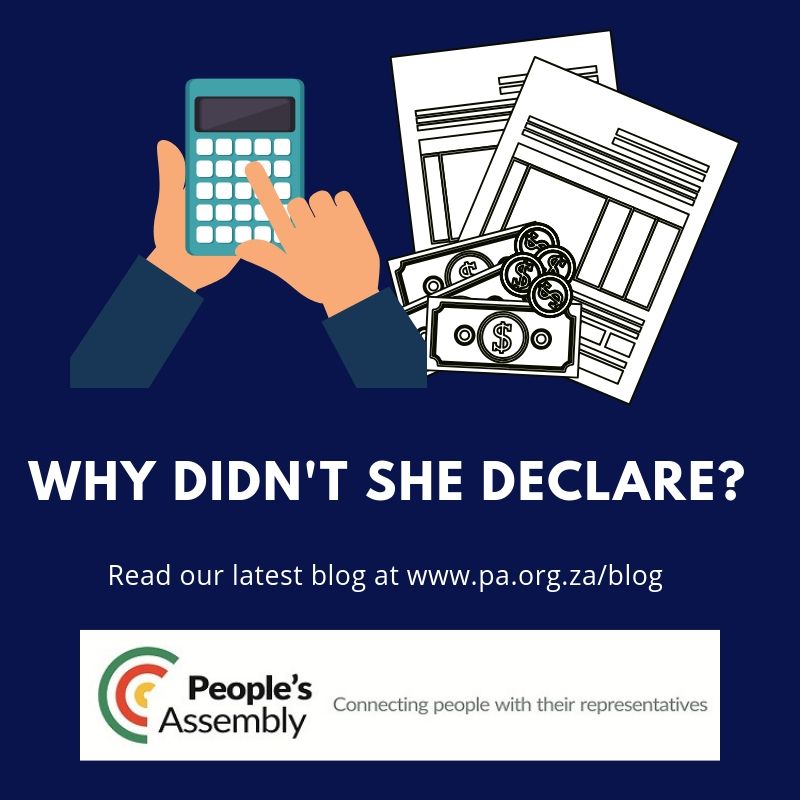by Gaile Fullard

Recently Twitter was asking this question – as elected representatives are annually required to declare benefits they receive from others. Check out the declarations on the People's Assembly website.
The 2019 Register is not available yet - the disclosure deadline is 13 September 2019 - but all past years are available. The Register of Interests provides information about any financial interest or benefit which a Member has which others might reasonably consider to influence the Member of Parliament. Transparency is the goal. A scan of the public, non-confidential part of the Register shows that MPs can be quite stingy in declaring their assets which includes all their directorships, shares, property, trusts, sponsorships, discounts or gifts over R1,500. This system relies on accurate declarations and it is difficult to know if Members have fully disclosed their benefits. It is only when someone publishes inside information about an undisclosed gift of money or an air ticket or hotel accommodation, that an uproar occurs.
Of note is the growing tardiness in publishing the annual Register. The declarations used to be published in September/October. But since 2016, the Register has been released up to nine months late due to waiting for all MPs to declare. Compliance can be measured by how many meet a strict deadline. In 2017 one in ten MPs did not meet the deadline. There are penalties for being late but they are light and the Ethics Committee which is required to investigate errant MPs, has a growing caseload.
With the focus now on accountability in the wake of State Capture and stories of MPs being in the pocket of businessmen, it is imperative to rebuild public trust. All elected representatives must be vigorous in meeting the 13 September 2019 deadline and provide full and accurate declarations.
The role of the Registrar is to ensure compliance but the office does not have investigation capacity. That is where the role of the media and public in scrutinising declarations is crucial. It is important to note that not only national but provincial and local elected representatives also declare and it is here where access to information by the public gets difficult. The government regulation that the declarations must be on the websites of all relevant institutions should be strictly applied or if there isn't such a regulation, there should be one - especially in this era of instant digital information.
What is refreshing about this week's hue and cry has been to glimpse on Twitter that South Africans know that their elected representatives need to declare potential conflicts of interests. May this awareness of what it means to be a representative for the public good (and not serve personal gain) continue to grow in our democracy.
However political scientist, Dr Collette Schulz-Herzenberg, makes an important point about responsible reporting by the media in her 2009 Paper on Financial Disclosures that holds particular relevance today: "When reporting, however well intentioned, is sensationalised, the result can be detrimental to the fight against corruption... Irresponsible coverage of innocuous cases diverts attention away from the really serious conflict of interest cases".


Comments
Keep comments free of racism, sexism, homophobia and abusive language. People's Assembly reserves the right to delete and edit comments
(For newest comments first please choose 'Newest' from the 'Sort by' dropdown below.)